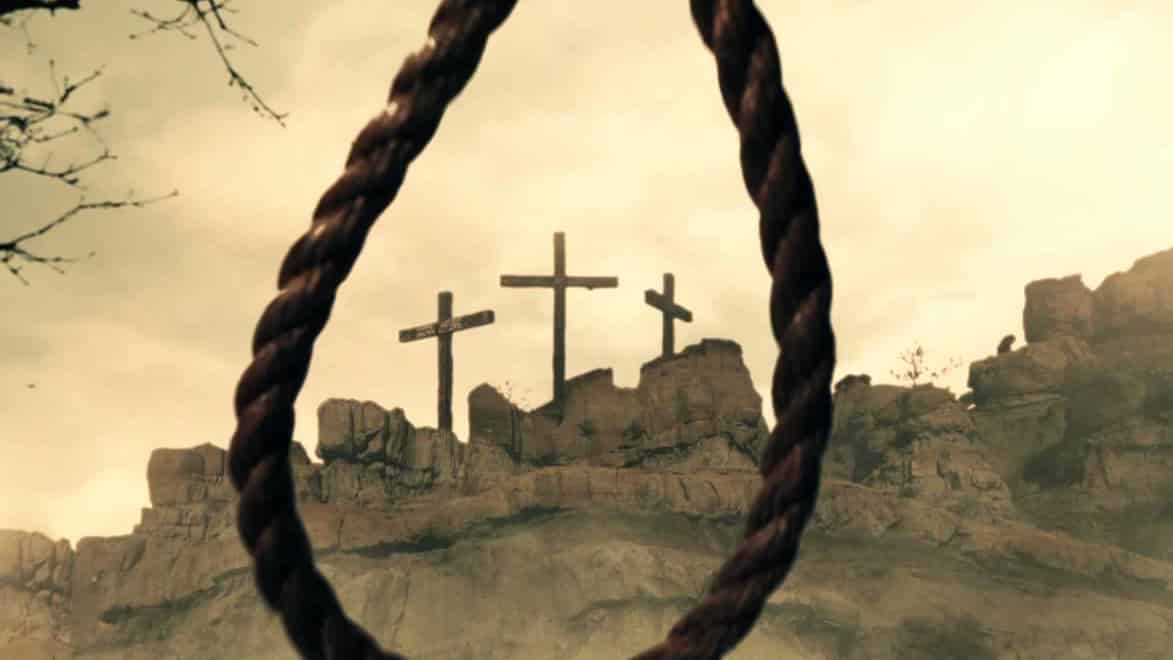21st century America is witnessing an epidemic of suicides that seems to traverse all demographics. Their motives have historically been variegated. The recent rash of celebrities taking their own lives, such as comedian Robin Williams, fashion designer, Kate Spade and celebrity chef, Anthony Bourdain, quickly prompted people to ask Why? The short answer is mental illness, which seems to be a catchall answer for all mysterious unnatural deaths, including mass murder.
Suicide has been a part of the human condition since the loss of Eden. The most memorable was that of Jesus’ disciple, Judas Iscariot, whose guilt at having betrayed Jesus for a mere 30 pieces of silver was more than his troubled mind could bear. Mel Gibson’s outstanding rendition of The Passion of the Christ implies that Judas was overcome with demons who tortured his guilty soul so that death was the only way he could stop them.
I first encountered my title phrase in high school during sophomore year when we read Shakespeare’s play, Julius Caesar. Brutus was duty-bound to fall on his sword because of his cowardly betrayal of Caesar as part of the Roman code of honor. This form of ritual suicide was dramatized in the 1960 film Cleopatra, near the end of the movie, when her lover, Mark Anthony knelt down, put the blade of his sword under his navel and fell forward.
The Romans were not unique in their pagan moral code. Almost two millennia later, the medieval Japanese practice of Seppuku, commonly referred to in the West as Hara Kiri, became quite prevalent during the waning days of World War II. Hollywood films about this period were saturated with the Samurai-driven Code of Bushido where many generals were required to disembowel themselves to save face among their ancestors. In the West, pistols were the usual weapon of choice to atone for battlefield failures.
Perhaps the answer to the question about, not only the recent rash of celebrity self-destruction, but suicide in general, resides in the late Psychologist Viktor Frankl’s book, Man’s Search for Meaning. While a prisoner in Auschwitz during World War II, Frankl witnessed humanity at its best and worst.
On September 25, 1942, Frankl, who was Jewish, together with his wife and parents, were deported to the Nazi Theresienstadt Ghetto. Subsequently, he lost every physical belonging he had, even a scientific manuscript he considered his life’s work. His entire family later perished in the camp. Enduring extreme hunger, cold and brutality, first in Auschwitz then Dachau, Frankl was under the constant threat of following them to the ovens.
Fortunately, when the Nazi doctors recognized his skills in psychiatry, he was assigned to the psychiatric care ward in Block B IV, where he established a camp service of psychohygiene or mental health care. He organized a unit to help camp newcomers overcome shock and grief.
His research discovered that those who had found a purpose in life, like himself, endured while those without any reason for living despaired and perished. While Frankl knew that Auschwitz had stripped him of an essential part of his humanity, he also realized that even in the most extreme of conditions, men still search for meaning in their environment. It is what Americans might call positive thinking, that is making the best of a bad situation.
Despite having been thrust into a pit of human degradation, Frankl miraculously emerged an optimist. Only people with a faith in themselves and God can do this. He reasoned that even in the most terrible circumstances, a person still has the freedom to choose how they see their circumstances and create meaning out of them. As Gordon Allport notes in his Preface to the third edition of Man’s Search… this is what the ancient Stoics called the ‘last freedom’. The evil of torture is not so much physical, but the active attempt to extinguish it.
While Frankl’s life serves as a beacon to millions of Americans who now linger in the throes of despair and depression, it is not difficult to understand why so many follow the Roman Way given what scientist, Wesley J. Smith, called America’s creeping culture of euthanasia.
Factor this with the the virtual neutralization of religion and the belief in a viable afterlife, and I do not mean some not puerile notion of Heaven as sitting on a cloud, eating Cheez-its with St. Peter, or playing golf with Arnold Palmer for all eternity, it becomes even clearer why an eternal darkness appeals to so many.
If all this is not enough for people to put an end to their lives without any apparent meaning, then consider the nefarious Global Warming Lobby whose main goal is to indict the carbon footprints of billions of people whose very existence in their twisted minds, is jeopardizing the future of Earth. To them, suicide of the unnecessary and the troubled is elevated to a planetary act of patriotism.
Assisting them in their demonic crusade is an army of what Pope Francis called the white gloves of organized medicine, who view many lives through the prism of uselessness, pain, suffering and depression. To the elite Left, compassion means ending their discomfort with an eternity pill.
Despite its mantra of saving the planet, the culture of death (COD) cannot be confused with the pagan dignity attached to the Japanese Code of Bushido or the Roman Way, but is a utilitarian solution to a mythological problem, created by the Junk Science of the Left.
The sad irony attendant to the euthanasia side of the COD coin is that it is often the survivors of the abortion generation, who encourage their elderly parents to do the planet and themselves a favor and follow the Roman Way into eternity.





